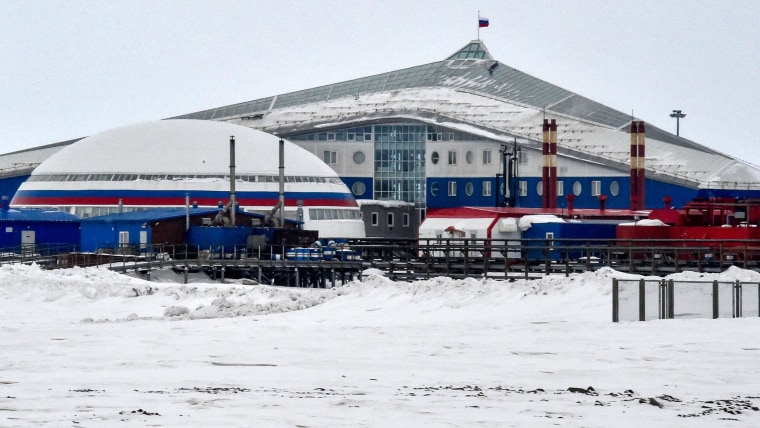U.S., Russia diplomats strike polite but firm tone in first face-to-face of Biden admin

Secretary of State Antony Blinken and Russian Foreign Minister Sergey Lavrov struck a polite tone Wednesday as they sat down for the first face-to-face engagement between high-level U.S. and Russian officials since President Joe Biden took office.
The discussion on the sidelines of the Arctic Council Ministerial in Reykjavik, Iceland, lasted more than 90 minutes and touched on a wide range of issues underlying the tense relationship between Washington and Moscow.
The meeting comes ahead of a potential summit between Biden and Russian President Vladimir Putin later this summer.
Both U.S. and Russian officials have acknowledged that relations between the two countries are at their lowest point in decades, with Wednesday’s talks expected to test the waters ahead of the highly anticipated sit-down between the two leaders.
A senior State Department official described the discussion between Blinken and Lavrov as “constructive.”

The representatives of the two Cold War foes opened the meeting with warm remarks, as both acknowledged the impact of their relationship on the safety and security of the world.
“There are many areas where our interests intersect and overlap, and we believe that we can work together and, indeed, build on those interests,” said Blinken, pointing to efforts to address the COVID-19 pandemic and combat climate change. Lavrov joined Blinken in finding common cause in Afghanistan and curbing the nuclear programs in Iran and North Korea.
The two experienced diplomats were not shy about setting their rules of engagement, however.
“If Russia acts aggressively against us, our partners, our allies, we’ll respond,” Blinken said. “And President Biden has demonstrated that in both word and deed.”
In April the United States slapped sanctions on Moscow for a series of Russian actions, including interference in the 2020 U.S. elections, the SolarWinds cyberattack and the continued occupation of Crimea. The measures included expelling ten Russian diplomats from the U.S.
The Kremlin responded in kind by expelling ten U.S. diplomats from Russia, sanctioning eight senior U.S. administration officials, including FBI Director Christopher Wray and Director of National Intelligence Avril Haines, and blocking the U.S. mission’s employment of foreign nationals. Although they have since delayed the action, the ban would cripple the ability for the U.S. embassy in Moscow to provide basic passport and visa services.
“We are prepared to discuss all issues on the table with the understanding that our discussions will be honest, factual, and with mutual respect,” Lavrov said Wednesday, warning, “Laws of diplomacy recommend mutuality, especially when it comes to response to any kind of hostile actions.”
In the same hour as the meeting, the State Department announced sanctions waivers for Nord Stream 2, a controversial pipeline near completion that would bring gas directly from Russia to Germany, bypassing both Ukraine and Poland.
Seeking to distinguish himself from his predecessor, Biden has maintained a tough stance toward Russia since coming into office — going so far as to agree that Putin is a killer. But his hesitancy to issue sanctions on those responsible for the Russian energy project has prompted bipartisan criticism.
Despite the timing of the announcement, Blinken and Lavrov did not delve into heavy discussion on the topic, according to a senior State Department official.
The ransomware attack on the Colonial Pipeline by the criminal hackers known as DarkSide was also raised, but only in the context of other cyber issues, the official said.




